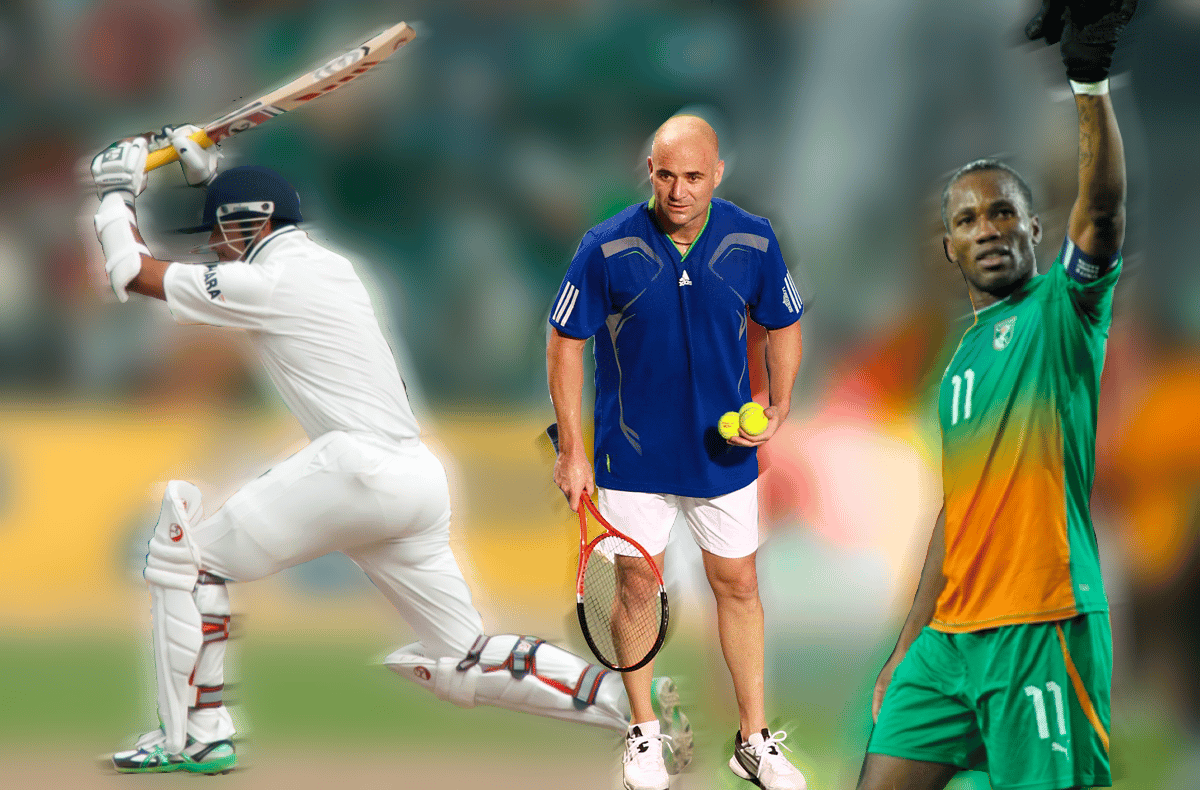
The term “world-class” is one of—if not the most—commonly used phrase in the footballing lexicon as a whole. For those not familiar with the phrase, it is often used to describe players that can be considered amongst the very best in the world in their respective positions. Once a player is largely considered “world-class” by the masses, they have well and truly “made it,” for all practical purposes.
However, football fans tend to be stingy in their usage of said term, as it is reserved for only the best in the business. It is borderline offensive to supporters if any player is just willy-nilly described as “world-class.” As a result, both fans and pundits alike have certain stipulations that aim to protect the sanctity of the term.
Yet in my opinion, more often than not, the commonly-held conditions for qualifying as a “world-class” football are way off the mark. Here, I will break down the myths that lie behind these flawed definitions of world-class players:
“A player has to win trophies to be considered world-class.”
In theory, the aforementioned statement seems fair. To be considered in and amongst the world-class bracket of footballers, consistently winning silverware would arguably separate a select group of players from the rest. In practice, however, lifting trophies can hardly be the main proof of what qualifies a footballer as world class: not everything is simply black and white.
Aspects such as the current state of the club, how it’s run from top to bottom, the calibre of the manager, and the quality of personnel are all facets outside of said player’s control that contribute to a team’s overall success and ability to win trophies.
One stark example of this is Harry Kane, an incredible player whose greatness has been dismissed on countless occasions by those who lazily use his lack of trophies as a stick to beat him with. Consider the fact that Tottenham Hotspur became the first club in Premier League history to spend a grand total of £0 in the 2018/19 transfer window as an example. While Kane did not stop in his tracks in that season, bagging 24 goals across all competitions, the Spurs did in their bid to keep elevating.
The North Londoners have largely continued to regress as a side over time. And yet, the England captain leapfrogged Andy Cole to recently become the outright third highest goalscorer in Premier League history.
This inversely proportional relationship between Tottenham as a team and Harry Kane as an individual player proves how using trophies—or a lack thereof—as a measure of a player’s success is an imperfect metric.
“A player has to be able to get into a World XI to be considered world-class.”
If the earlier statement was mildly understandable, this one is just comically unreasonable. Yet there has been no shortage of people who believe in its validity.
The World XI, or FIFA World Stars, is an association football team comprising players from countries the world over, where each position is chosen from the top players in the sport. For the distinction of “world-class” to be reserved to one single position in a team that handpicks the 11 best players in the world is unnecessarily selective, to say the least.
While outfield positions on a football pitch can be demarcated as defenders, midfielders and forwards, there are sub-categories within each role, which complicates matters even more. For instance, centre-backs, right-backs and left-backs, all qualify as defenders. Taking into account the number of exceptional candidates for each role, the gatekeeping of the World XI distinction, which narrows each down to only one player, serves little to no purpose and is objectively off the mark.
If the majority of football fans crown Alisson Becker as the best goalkeeper in the world, it is unlikely that the same lot would unanimously claim he is in a league of his own in comparison to the incredible Thibaut Courtois. Instead, the popular opinion is likely to be that, while it is a case of fine margins, the Liverpool shot-stopper just edges out the parallel made between the pair.
Amongst the elite of the elite, the disparity comes down to mere inches, which makes it all the more ludicrous to reserve the world-class stamp of approval to just one single player.
In cases where a certain phenom is far and away the standout candidate in their position, referring to them as the best is a far easier task than completely failing to acknowledge the brilliance of their peers.
“A player has to perform in big games to be considered world-class.”
Up until this point, this statement is the finest barometer to ascertain whether a player is worthy of being hailed as world-class. The term “flat-track bully” rightfully exists for any sportsperson that shines against lower opposition, but looks like a shadow of their usual self against the very best.
While a world-class footballer should be expected to rise to the occasion under the bright lights, there is also a desperate need for nuance in this conversation; far too often, extreme conclusions are arrived at solely on the basis of a single, high-profile game.
For instance, Erling Haaland’s playing was called into question because of a rare off-day in his first competitive start for Manchester City against Liverpool in the FA Community Shield.
Furthermore, the definition of what qualifies as a “big game” is skewed. To many, knockout rounds in tournament football are what singlehandedly fit the criteria.
Keeping that in mind, eyebrows have been raised over the greatness of Thierry Henry, considering he has famously never scored in a final. However, that is merely a case of itching towards selective evidence. After all, grinding out a victory in a closely-fought title race against lower opposition could arguably be as significant to a top side as emerging triumphant in a cup final.
Additionally, a certain section of elite players such as, say, Alan Shearer, cannot be thrown under the bus for not spearheading their sides to silverware, considering the fact that he was the face of a relatively middling Newcastle side. And on the two occasions that the Magpies did manage to reach the FA Cup final, Shearer and his troops came unstuck against the two dominant forces of English football at the time in Arsenal and Manchester United.
More often than not, the absolute truth tends not to exist in football.
“How can he be world-class? Just look at his stats…”
Right off the bat, it is essential to stress that statistics have a key place in football, in terms of both discourse and the advancement of the game as a whole. However, considering mere goal and assist numbers as the holy grail for assessing attacking players is by far the most reductive possible barometer of determining whether a player can be classed amongst the upper echelon.
The power wielded by statistics is instantly foregone, once they are put to use without context. This transpires in particular when many compare players from the present to the past, without taking into account how far the game has progressed.
For instance, Manchester United legend Ryan Giggs’ goal and assist numbers may seem unimpressive to today’s Gen Z football fan. When compared with Son Heung-min, who took home the Golden Boot just last term with 23 league goals, the Welshman pales in comparison—his most productive season saw him score just 13 goals.
However, it defeats the entire point of the conversation to compare past and present players without taking into account the stark difference in roles between wingers of yesteryear and today. Back in the day—especially in England—wide players were expected to divide the defensive workload with full-backs, maintain the width, and be direct in their attacking approach. Nowadays, wingers are akin to strikers, and above everything else are compelled to churn out sizable goal and assist numbers.
While Son Heung-min may well be a superior winger to Ryan Giggs, it’s still problematic to dismiss the greatness of the latter. Questioning Giggs or any acclaimed ex-footballer’s place amongst the pantheon of greats is permissible, but not without a strong argument with ample evidence backing up one’s claims.
The truth is that nearly any argument can be made that can tarnish a player’s chances of qualifying as world-class. For every argument in favour of a player’s skill, there is a counterargument that leads us into a vicious cycle of convoluted discussions headed nowhere.
A careful, fair assessment of all the circumstances at play—without the ulterior motive of proving a point—would be the ideal way for us to define any player’s quality fairly. However, the combination of football tribalism with social media at its peak ensures that reaching a place where such nuanced discourse is commonplace is easier said than done. Until then, I’d recommend we all approach our knee-jerk reactions towards which players are or aren’t “world-class” with a grain of salt.



